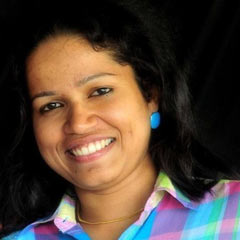Jisha murder case: Activists who sought probe summoned

Mail This Article
Kozhikode: As many as 12 activists, including transgenders, who demanded a fair investigation into the 2016 murder of Jisha, a law student in Perumbavoor, have been summoned by the magistrate court here.
One of the activists, advocate Maya Krishnan, who is practising in the High Court, told Onmanorama that they were charged with Indian Penal Code (IPC) Sections 332 (voluntarily causing hurt to deter public servant from his duty) and 353 (assault or criminal force to deter public servant from discharge of his duty).
“The summons were to appear before the court on April 4, 2019, but my address was not clear; and hence they had to search and find out. Now, either this month or next month I have to appear. Many others in the list are yet to receive the summons,” said Maya.
Jisha was raped and killed in her one-room house in Perumbavoor on April 28, 2016.
“Jisha's murder was ignored because she was a Dalit and a poor woman. I really do not understand on what grounds the police are targetting us now, maybe that we took out processions and organised protests demanding probe. If the government is aiming to ensure women safety, they should withdraw case against us. We only demanded a fair probe into the murder of a young girl,” she added.
Jisha was a classmate of Meera's junior advocate.
The advocate and her friends started campaigning on social media after their enquiries to Kuruppampadi police station fell on deaf ears.
The campaign was later taken up by the entire state as 'Justice for Jisha' campaign.
The campaign was exploited by the Left Democratic Front (LDF) as a tool against the then Oommen Chandy government.
However, the activists point out that no investigation officials were punished for their inaction.
In December 2017, Ameer ul-Islam, the lone accused in the sensational rape and murder, was pronounced guilty.
The court found Ameer guilty on three counts of forcefully entering Jisha's house, rape, and murder.
However, the court did not accept the charges that he tried to destroy evidence.
He was booked under various sections of the IPC and Scheduled Castes and Scheduled Tribes (Prevention of Atrocities) Act.
As many as 100 witnesses were examined during the trial. The prosecution has described it as a rarest of rare case.


